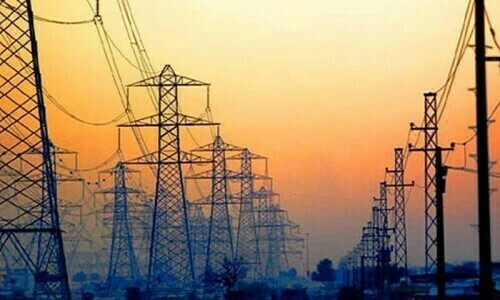ISLAMABAD: The ‘transport and communication’ (T&C) sector remained heavily influenced by projects related to China Pakistan Economic Corridor (CPEC) during the outgoing fiscal year with focus not only on building roads and improving the rail network but also on establishing new communication lines.
Amongst the new initiatives in the sector includes the implementation of 820km-long cross-border fibre optic project (Khunjerab-Rawalpindi) whose completion is expected in August 2018.
Transport and communication sector has been considered as a driving force for overall economic and social development of the country in the Economic Survey 2017-18.
The survey stated that CPEC is also going to build up an efficient transport and communication system which will not only have a positive influence on mobility of products, trade stimulation, extension of markets, increase in employment, but will also support spread of education as well increase social welfare and help in stability of prices.

Through CPEC, Pakistan is harnessing its geo-strategic location into a geo-economic advantage.
“It is a massive bilateral programme to improve soft as well as hard infrastructure within Pakistan for better trade with China and transform the country’s economy through modernisation of transport and energy,” the survey added.
In addition to the road projects, the two countries have agreed to establish a dry port at Havelian in Hazara district of Khyber Pakhtunkhwa.
Besides rail and road, CPEC focuses on urban development with projects like Greater Peshawar Region Mass Transit, Karachi Circular Railway, Orange Line Lahore and Quetta Mass Transit.
It has been highlighted that National Highway Authority has a network of 39 national highways, motorways, expressway and strategic roads, with a network of 12,131 km.
Amongst other initiatives in this sector, revitalisation of railways holds a top priority. During July-December 2017-18, gross earnings of railways improved by 26.7 per cent, number of passengers carried by 4.7pc, freight handled by 55.8pc over the corresponding period of last year.
The survey notes that the revenues from telecom sector reached Rs235.5 billion during the first two quarters of the outgoing fiscal year. Telecom operators have invested a noteworthy amount of $322.9 million during this period.
During the first two quarters of FY18, the sector contributed Rs78.62bn to the national exchequer in terms of taxes, regulatory fees, initial and annual license fees, activation tax and other charges.
In July-December FY18, Pakistan National Shipping Corporation earned profit before tax of Rs902m while Karachi Port Trust showed an increase of 5.1pc in goods handling with the breakup of export and import growth at 14.9pc and 1.6pc, respectively.
Meanwhile, Port Qasim handled a total volume of 21.36m tonnes during the first half of 2017-18, higher by 24.5pc over same period of last year.
Published in Dawn, April 27th, 2018











































